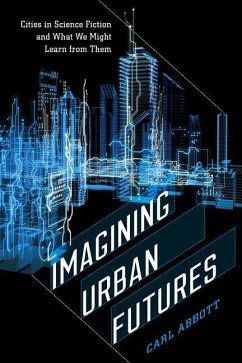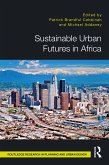Carl Abbott, who has taught urban studies and urban planning in five decades, brings together urban studies and literary studies to examine how fictional cities in work by authors as different as E. M. Forster, Isaac Asimov, Kim Stanley Robinson, and China Mi¿lle might help us to envision an urban future that is viable and resilient. Imagining Urban Futures is a remarkable treatise on what is best and strongest in urban theory and practice today, as refracted and intensely imagined in science fiction. As the human population grows, we can envision an increasingly urban society. Shifting weather patterns, rising sea levels, reduced access to resources, and a host of other issues will radically impact urban environments, while technology holds out the dream of cities beyond Earth. Abbott delivers a compelling critical discussion of science fiction cities found in literary works, television programs, and films of many eras from Metropolis to Blade Runner and Soylent Green to The Hunger Games, among many others.








